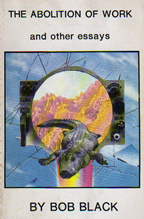What do you think?
Rate this book


168 pages, Paperback
First published January 1, 1985
«El trabajo es perjudicial para la salud. Es más, el trabajo es asesinato en masa o genocidio. Directa o indirectamente, el trabajo matará a la mayoría de las personas que lean estas palabras.»
«Si queremos deshacernos del patriarcado, tenemos que deshacernos de la familia nuclear cuyo “trabajo en la sombra” no pagado, como dice Ivan Illich, hace posible el sistema de trabajo que a su vez la torna imprescindible»
El trabajo es la fuente de casi toda la miseria existente en el mundo. Casi todos los males que se pueden nombrar proceden del trabajo o de vivir en un mundo diseñado en función del trabajo. Para dejar de sufrir, hemos de dejar de trabajar.
Y esto no significa que tengamos que dejar de hacer cosas.